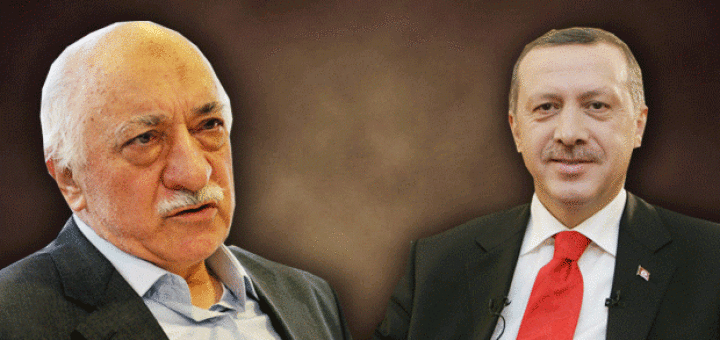
Erdoğan’s former ally and most principled opponent: Fethullah Gülen has died
Fethullah Gülen, an Islamic preacher and the leader of the FETO movement, has died at the age of 83 in Pennsylvania, U.S. The Turkish authorities blame him for the attempted military coup in 2016. Who was Gülen and what was his role in the political life of Turkey?
Fethullah Gülen was a Turkish preacher, theologian and the founder of the Hizmet movement, also known as the Gülen movement. He has influenced the political, educational and religious life of Turkey in several stages, but his relationship with President Recep Tayyip Erdoğan has gone through several key stages—from cooperation to intense conflict and accusations of a coup attempt.
Gülen was born in 1941 in the Erzurum region. He began his career as a preacher in the 1960s and 1970s, advocating a moderate branch of Islam with a focus on fostering dialogue between cultures and religions.
Beginning in the 1970s, the Hizmet movement gained influence by establishing private schools, universities, charities, media and businesses both in Turkey and abroad. It aimed to promote education and religious piety, and created a network of loyal followers within the Turkish state, particularly within the police, judiciary and military.
In the 1980s and 1990s, Gülen kept a low political profile, focusing on spreading his ideas and expanding his network. His ideology promoted its influence on Turkish society and politics, particularly working on the cadres in state institutions.
In 2002, Erdoğan’s Justice and Development Party (AKP) came to power. From the beginning, Erdoğan and Gülen had a common goal to reduce the influence of secular political forces enjoying military support.
The Gülen movement was seen as an instrument in eliminating the military’s political influence, and Hizmet-related figures in the judiciary and police helped prosecute secular officials in high-profile cases, the most high-profile of which was the Ergenekon trials.
Gülen has given a lot of support to AKP through such media as Zaman newspaper and Samanyolu TV channel.
In return, AKP contributed to the expansion of the movement in the field of education and bureaucracy. The alliance was based on mutual benefit. Erdoğan’s party wanted to strengthen power, while Gülen aimed to increase the movement’s influence within the state.
Over time, AKP became more dominant, which led to tensions between Erdoğan and the Gülen movement. The Gülenists, who were holding positions in important state agencies, began to act independently, which caused concern for Erdoğan.
The limitation of the movement’s educational influence by the government became the point of no return. In 2013, a decision was made to close the private training centers that were an important part of the Hizmet network.
In December 2013, police and judicial authorities linked to the Gülen movement launched a massive corruption investigation targeting Erdoğan’s inner circle, including his son. Erdoğan assessed this as a coup attempt plotted by the Gülenists to wreck his government.
In response, Erdoğan accused the Gülen movement of seeking to be a “deep state” by launching a crackdown, purging suspected Gülenites from the judiciary, police and other government institutions.
Gülen, who had lived in the United States since 1999, denied involvement in the corruption probe and subsequent political scandals. However, Erdoğan’s government began to view him as an existential threat to the stability of the state.
In 2016, a group formed within the Turkish army staged a coup attempt against the Erdoğan government. AKP accused Gülen of planning the coup attempt with the help of his loyal cadres in the armed forces.
Although Gülen denied his involvement in the coup attempt, the Turkish government called his movement a terrorist organization and demanded that the U.S. extradite him, a request that was not granted.
After the failed coup, Erdoğan launched a large-scale purge of Gülen alleged followers from the military, judiciary, education, and state administration. Thousands were arrested or fired, and many sought asylum abroad.
Schools, media outlets and businesses linked to the Gülen movement were closed, and relations between Turkey and the U.S. were strained over the extradition dispute.
Gülen remained in Pennsylvania for the rest of his life.
Erdoğan still maintains the “threat of FETO” as a political trump card to justify the pressure on the opposition and to tighten the control over state institutions.
The fallout from the Erdoğan-Gülen rivalry has reshaped Turkey’s political landscape. Erdoğan’s consolidation of power increased authoritarian tendencies, while the purges deeply weakened civil society, the judiciary, and public institutions.
The relationship between Fethullah Gülen and Erdoğan turned from a strategic alliance into a bitter enmity, with both figures significantly influencing modern Turkish politics.
What began as a collaboration aimed at dismantling the “secular establishment” turned into a fierce competition that led to a failed coup attempt, mass purges, and long-lasting political consequences. The Gülen movement, once an important factor in Turkey’s political life, has since remained on the sidelines, while Erdoğan has become an increasingly dominant figure.
Vardan Papikyan



